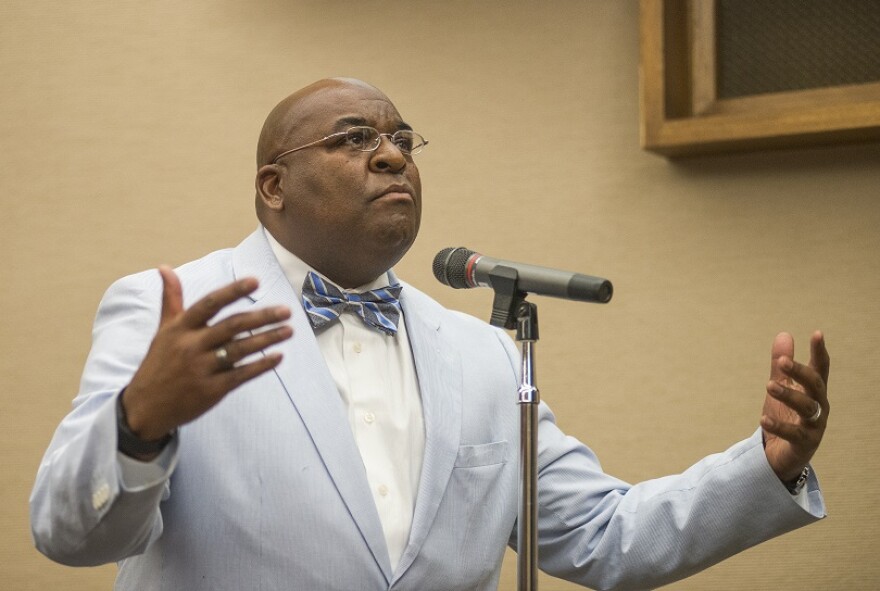How does President Donald Trump fit within the tradition of the presidency? Is his style beholden to his voters? And is his New York swagger and often controversial rhetoric — not to mention the Tweets — good for America?
That's what NPR Southwest Correspondent John Burnett and Up To Date host Steve Kraske asked more than a hundred Kansas Citians who came to the Harry S. Truman Presidential Library and Museum for A Nation Engaged, a collaboration between NPR's On Point and four member stations across the country.

Toni Viens, a real estate consultant and New York native, was one of the first audience members to share her thoughts on mic. She previously worked in New York City and said she attended some meetings with the president many years ago.
She says many people take President Trump's authoritarian style for bluster, when in fact, it's simply a product of his environment.
"Trump is very much a New Yorker," Viens said. "A lot of his bombastic attitude and way of doing things is not that he's trying to be crude or rude or offend people — that's the way many New Yorkers are."
Others, like Rev. Dr. Vernon Howard of the Kansas City branch of the Southern Christian Leadership Conference, weren't convinced that Trump's numerous controversial statements were good from moral or policy standpoints.
"Is it good for a candidate or a president to birth a birther movement of false accusations of the first two-term African-American president, and then after eight years have to halfway apologize for such statements and activity that is laced with such racism and falsehoods?" Dr. Howard asked. "I don't think [it is]."
Dr. Howard also said he believes Trump's flip on his promise to label China a currency manipulator and his statements over payment for a border wall were "questionable at least."

In addition to audience members, who propelled most of the conversation, University of Missouri-Kansas City professor Max Skidmore and Truman Library Archivist Randy Sowell helped provide historical context for Trump's first 100 days.
Skidmore said that Trump is similar to President Harry Truman in that both men had to learn much about governing in their first 100 days, but that Trump has had a steeper learning curve because of his background in private business.
"Harry Truman, Abraham Lincoln and Andrew Jackson all had keen political instincts and all were thoroughly versed in the political system," Skidmore said. "All presidents, to some extent, learned on the job. But Mr. Trump clearly is learning on the job and has had far more to learn than his predecessors."
"Donald Trump seems to have much more self-assurance coming into the presidency than Truman did," Sowell noted. "As president, eventually you do have to rely on others for advice and I think that he is coming to grips with that as every president does."
Others in the audience said they supported Trump and were glad that the president took a hard stance against establishment politics. Dave Bahner, a retired banker, said he feels Trump will make positive changes within his powers as president.

"If you look at what's happened in Washington in the last 50, 60 years where we've ... constantly run up deficits, especially in the last eight years, something has to change," Bahner said. "If he can accomplish a third of the goals that he set out, I'll be a happy camper."
Sean Hannah, a property investor, said he had faith in the Constitution and system of checks and balances to rein the president in if necessary.
"I trust in the power of our Constitution, and I know the limited powers of our president," Hannah said. "You can't have a government that does all of these powerful things for you that can ... work unchecked by the Supreme Court."
Cody Newill is the digital editor for KCUR 89.3. Follow him on Twitter @CodyNewill.



